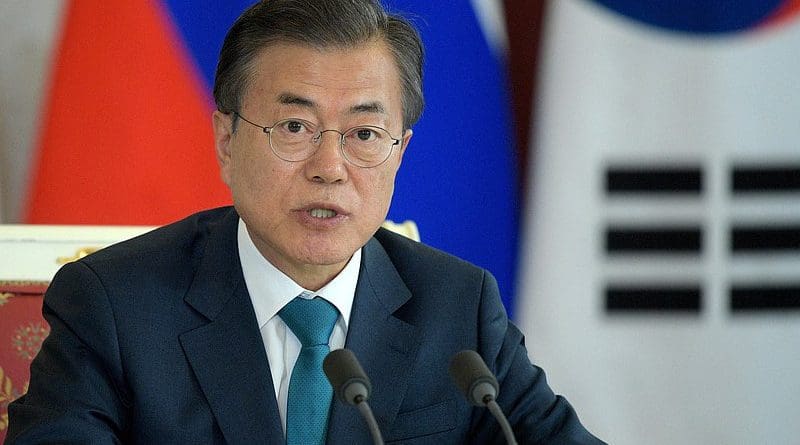Three Observations On A Declaration To End The Korean War – OpEd
By IPCS
By Dr. Sandip Kumar Mishra*
South Korean President Moon Jae-in’s efforts towards an end-of-war declaration on the Korean War appears to be moving ahead despite apprehensions. Moon has appealed for such a declaration several times during his tenure, with the most recent one in September 2021 at the UN General Assembly. The declaration, if signed, would formally end the Korean War, which has been in a truce since July 1953. On 31 October 2021, South Korean Foreign Minister Chung Eui-yong said that the draft declaration’s “format and content” have been finalised, and South Korea-US coordination on this is in the “final stage.”
Three things are going to be crucial in the signing of a declaration.
One, will an end-of-war declaration (peace treaty) be accepted by all the parties that were part of the Armistice Agreement? The Armistice Agreement was signed between the US (as the leader of the UN Command), North Korea, and China (Chinese People’s Volunteer Army participated in the war). A future declaration would need to be signed by at least these three countries as well as South Korea. In fact, the current move was initiated by the Moon administration.
China appears to be in agreement with the declaration. However, the US hasn’t been as keen. There are still apprehensions about the US not finding such a declaration useful or relevant at this point in time. North Korea would apparently have no objection, but no formal statement has so far been forthcoming. In response to Moon Jae-in’s September 2021 proposal, Kim Yo-jong, North Korean leader Kim Jong-un’s sister, called the idea “interesting” and “admirable.” Crucially, South Korean interest is limited to the Moon Jae-in administration, which has less than six months left in office. The main opposition party and several other leaders feel that Seoul’s haste to sign such a declaration is inappropriate and may help North Korea.
Two, such a declaration is important primarily to forge trustworthy relations between North and South Korea, which allegedly leaves North Korean denuclearisation unattended. It will thus be interesting to see how the nuclear issue is placed in any draft of the declaration. In the past few years, Seoul has attempted a division of labour that assigns the North Korean nuclear file to Washington, and inter-Korea rapprochement to itself. Washington, on the other hand, doesn’t want to delink the two issues. This view is also supported by South Korea’s main opposition party, which feels that delinking would help North Korea move out of international isolation without itself making any nuclear concessions. The latest draft of the declaration will reportedly contains the denuclearisation issue, though it isn’t clear how much importance or conditionality it could be premised on.
Three, the more fundamental issue is whether such a declaration would be called a peace treaty, and even if it is, whether it can actually bring peace and trust to the Korean peninsula. Normally, when parties involved in any conflict realise the futility of conflict, they begin working towards peace through formal or informal mechanisms. Skeptics say no, using the example of the Moon Jae-in administration’s several attempts to engage North Korea in the past four years, despite which the inter-Korea trust quotient remains low. Moon has held three summit meetings with Kim, signed the Panmunjom Declaration, and established liaison offices, but there is no substantial positive net result. An end-of-war declaration could then become just another item to be cited by the current South Korean government as an achievement that does little to change ground realities.
If the end-of-war declaration comes through notwithstanding these complications, it will be a resoundingly positive development, especially if denuclearisation finds mention in it. Even if it doesn’t lead to substantial changes on the ground, any positive step in inter-Korea relations could have potential for broader take-off. Such opportunities must therefore always been used.
*Dr Sandip Kumar Mishra is Associate Professor, Centre for East Asian Studies, SIS, JNU, & Distinguished Fellow, IPCS.

